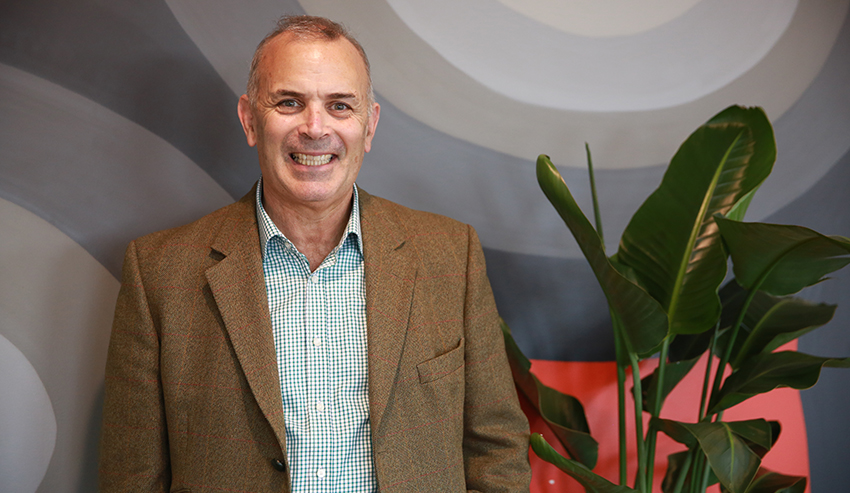With a 32-year career in Defence, John Hutcheson has led men and women in the field, mentored and instructed the nation’s future military leaders and now stands proud in his commitment to the nation through his role as the CEO of Legacy NSW Associated Clubs, continuing the promise returning WWI diggers made to their mates almost 100 years ago.
To continue reading the rest of this article, please log in.
Create free account to get unlimited news articles and more!
Beginning in 1983, Hutcheson's career with the Australian Army has seen a variety of iterations, ranging from the staff training college and the senior government adviser to the Australian high commission in London, to more operational experience as the commander of the Joint Task Force Regional Assistance Mission to the Solomon Islands (RAMSI) and the commander of the International Stabilisation Force in Timor-Leste.
During his time in both the Solomon Islands and Timor-Leste, Hutcheson built upon the international standard and recognition established by now Governor-General Sir Peter Cosgrove during his command of the first Australian-led intervention in East Timor in the late 1990s, leading the stabilisation and extensive reconstruction efforts of each of these nations, as requested by the Australian government.
Both Timor and the Solomon Islands represented starkly different operating environments, with vastly different organisational, management and operational requirements.
The Solomon Islands saw a traditional stabilisation and reconstruction effort led by Australia, which required Hutcheson in his capacity as the commander of the Joint Task Force for RAMSI co-ordinating and collaborating with the Department of Foreign Affairs, Australian Federal Police and the government of the Solomon Islands to establish a secure environment, while rebuilding the economy and restoring law and order.
RAMSI also saw coalition partnerships and co-ordination with regional partners including New Zealand, Tonga, Fiji and Papua New Guinea.
Following his time in the Solomon Islands, Hutcheson assumed the role of chief operating officer with the Army, during which time he oversaw the operational management and stakeholder relationships for the Army in the aftermath of riots in the Solomon Islands, governmental collapse in Timor-Leste and, closer to home, operational support to the Queensland government following Cyclone Larry and the Victorian government following the Black Wednesday bush fires.
This experience prepared Hutcheson for further operational experience during his deployment as the commander of the International Stabilisation Force in Timor-Leste, which required close collaboration and co-ordination with the Timorese prime minister, government and Australian government to develop a 20-year plan to develop an indigenous security force.
Additionally, the role in Timor required critical collaboration with the United Nations and NGOs in order to facilitate the oversight of 850 individuals to help stabilise Timor-Leste.
Prior to his transition to the Australian high commission in London, Hutcheson served as the dean of land studies at the Australian Command and Staff college, where he managed the delivery of internationally accredited postgraduate academic curriculum in military studies at the Australian Defence College.
During his time with the Australian high commission in London, Hutcheson provided political advice to the high commissioner on national security policy, Australian Army and veterans affairs programs in the UK and across Europe.
He was also responsible for developing key relationships with NATO and ensuring that Australian military equipment was interoperable with the British Army and other NATO members during operations in Afghanistan and the Middle East.
The role with the high commission also exposed Hutcheson to the UK ministry responsible for veterans’ affairs and welfare, Commonwealth War Graves Commission and the wider veterans’ community to meet the Australian government’s long-term aims.
Following his time in the Army and the various operational and managerial roles within Defence, Hutcheson branched out to do brief stints with Waverley Council before settling at Legacy NSW in mid-2015 as COO, responsible for delivering for 11,000 legacy dependants including widows, children and families of service men and women who have given their lives and/or health as a result of their service.
While with Legacy, Hutcheson established Caledonian Solutions, a consultancy business to assist organisations to develop people that can think, communicate and influence others to build well led teams in the workplace to improve performance and optimise business outcomes.
In November 2015, Hutcheson assumed his current role as the CEO of Legacy NSW Associated Clubs, building on his experience as COO to continue providing support services for returned service men and women and their dependants following their death or incapacity.
It is his 32-year career in the services that allows Hutcheson to understand the real challenges that are faced by service men and women and their families and support networks when faced with death, or as is more common in modern conflict zones, incapacity and disability due to injury sustained during their service.
Legacy is a voluntary organisation providing services to around 70,000 families of veterans who have died or given their health. Today Legacy's service assists over 65,000 widow(er)s and 1,800 children and dependants with a disability.
As a voluntary organisation supported by veterans and service men and women, Legacy's 5,900 national volunteers are drawn from all walks of life. Legacy's support and services now extend to include the dependants of members of today's ADF who lose their lives or health as a result of their military service.
Legacy is dedicated to enhancing the lives and opportunities for their dependants, through innovative and practical programs aimed at:
- The protection of individuals and families basic needs;
- Advocating for their entitlements, rights and benefits;
- Assisting families through bereavement; and
- Helping people thrive, despite their adversity and loss.
To donate or get involved with Legacy, more information is available here. The full Defence Connect Podcast with John Hutcheson AM is available here.
Stephen Kuper
Steve has an extensive career across government, defence industry and advocacy, having previously worked for cabinet ministers at both Federal and State levels.

 Login
Login








